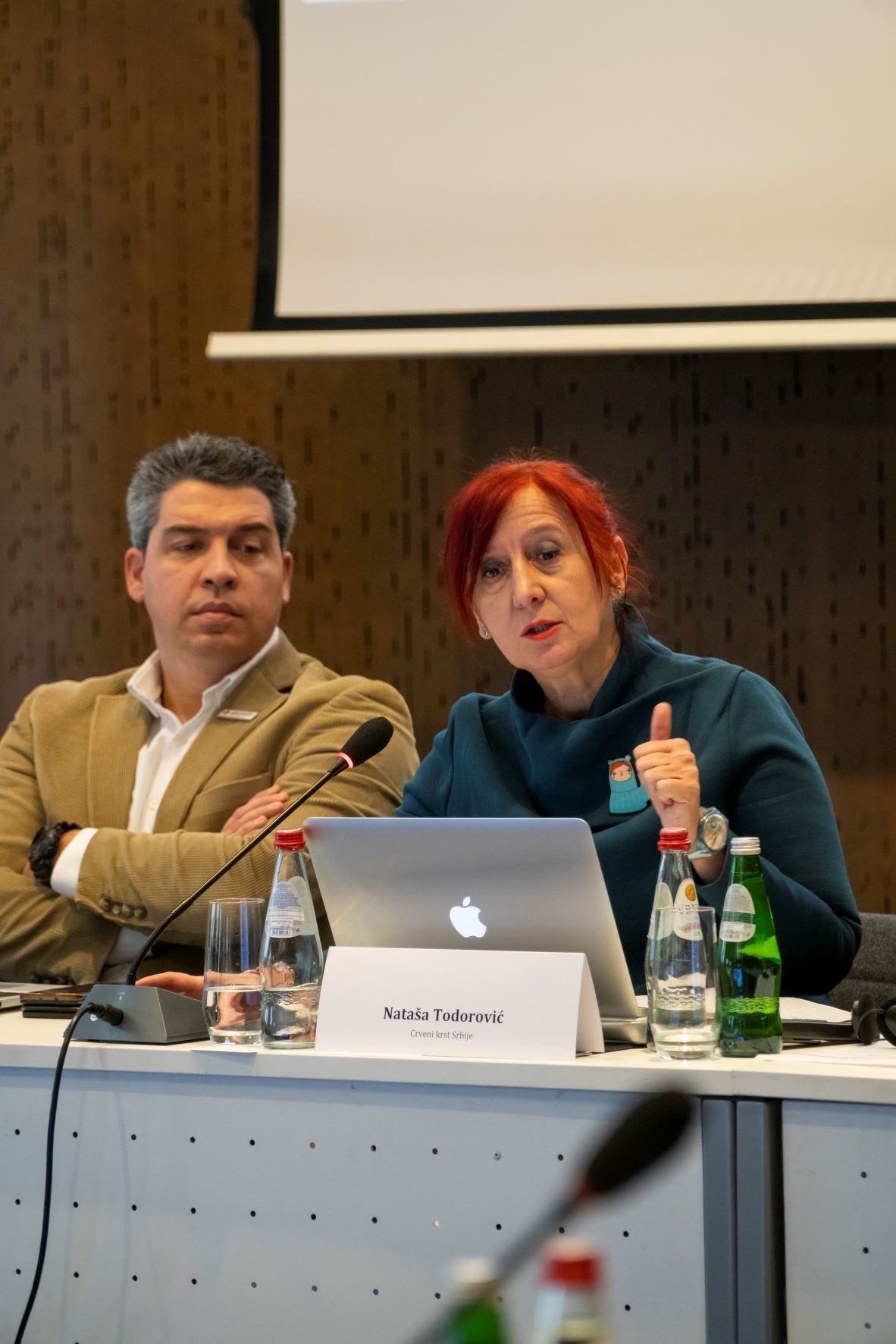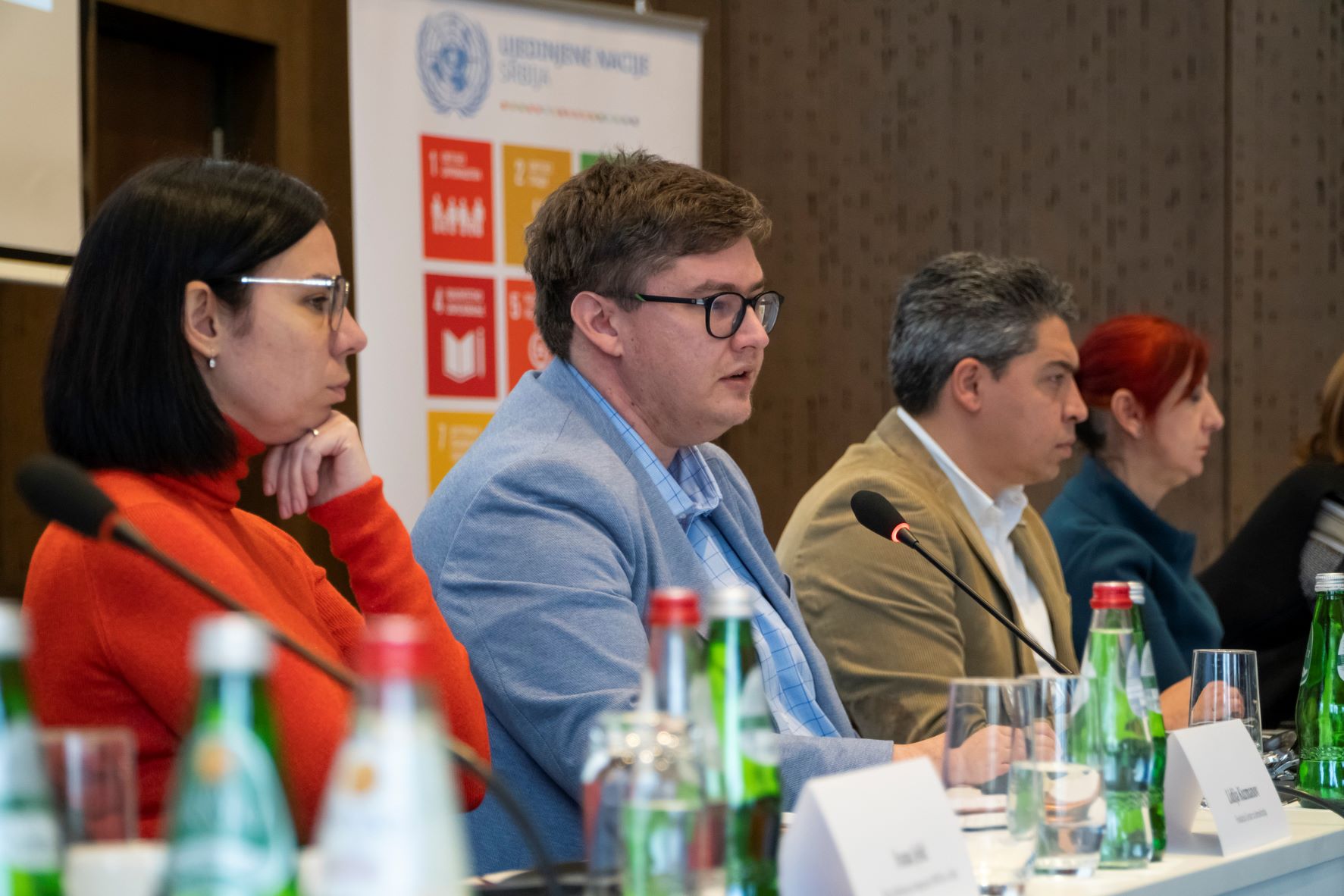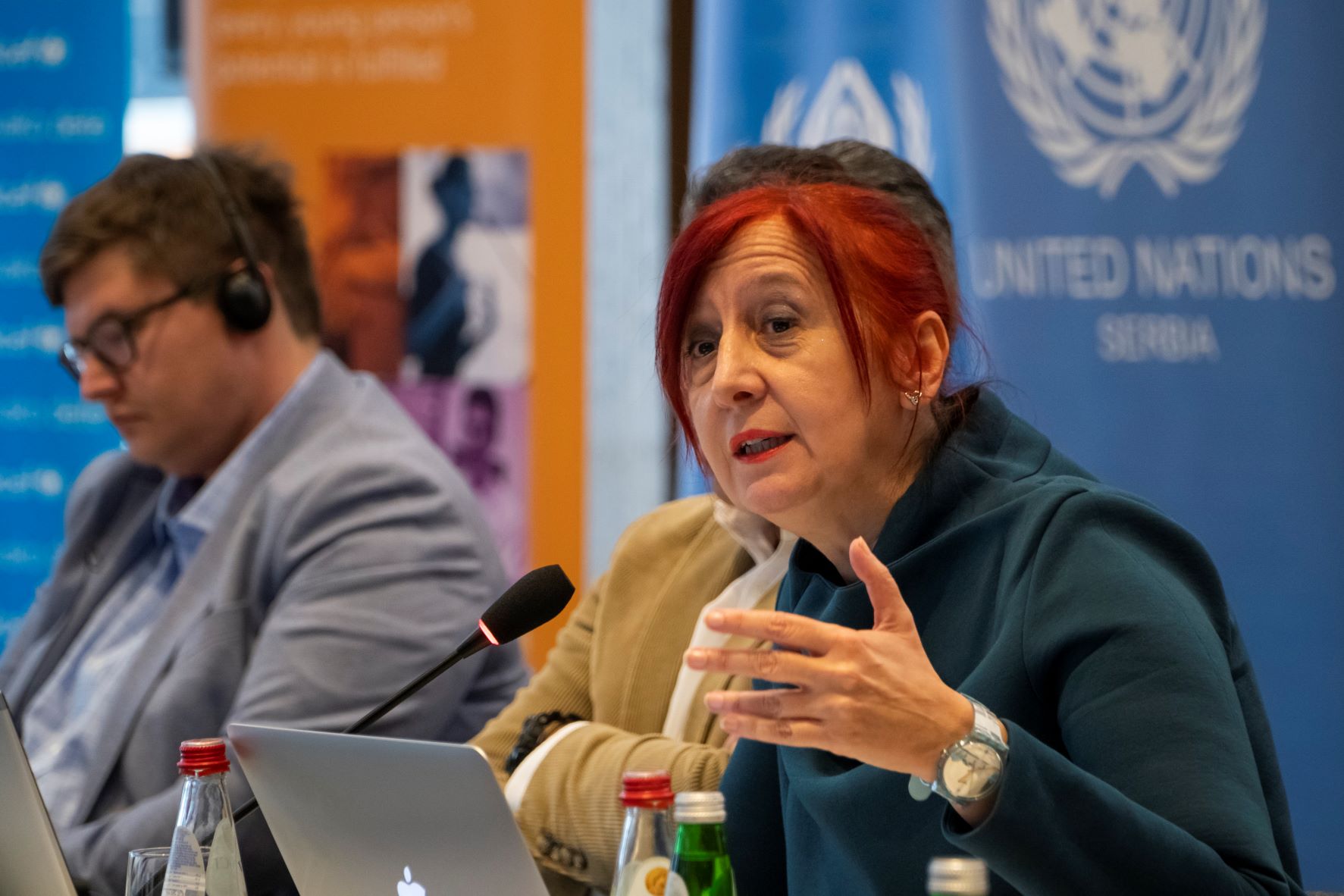Workshop “Extending Social Protection to families in Serbia with enhanced shock-responsiveness”
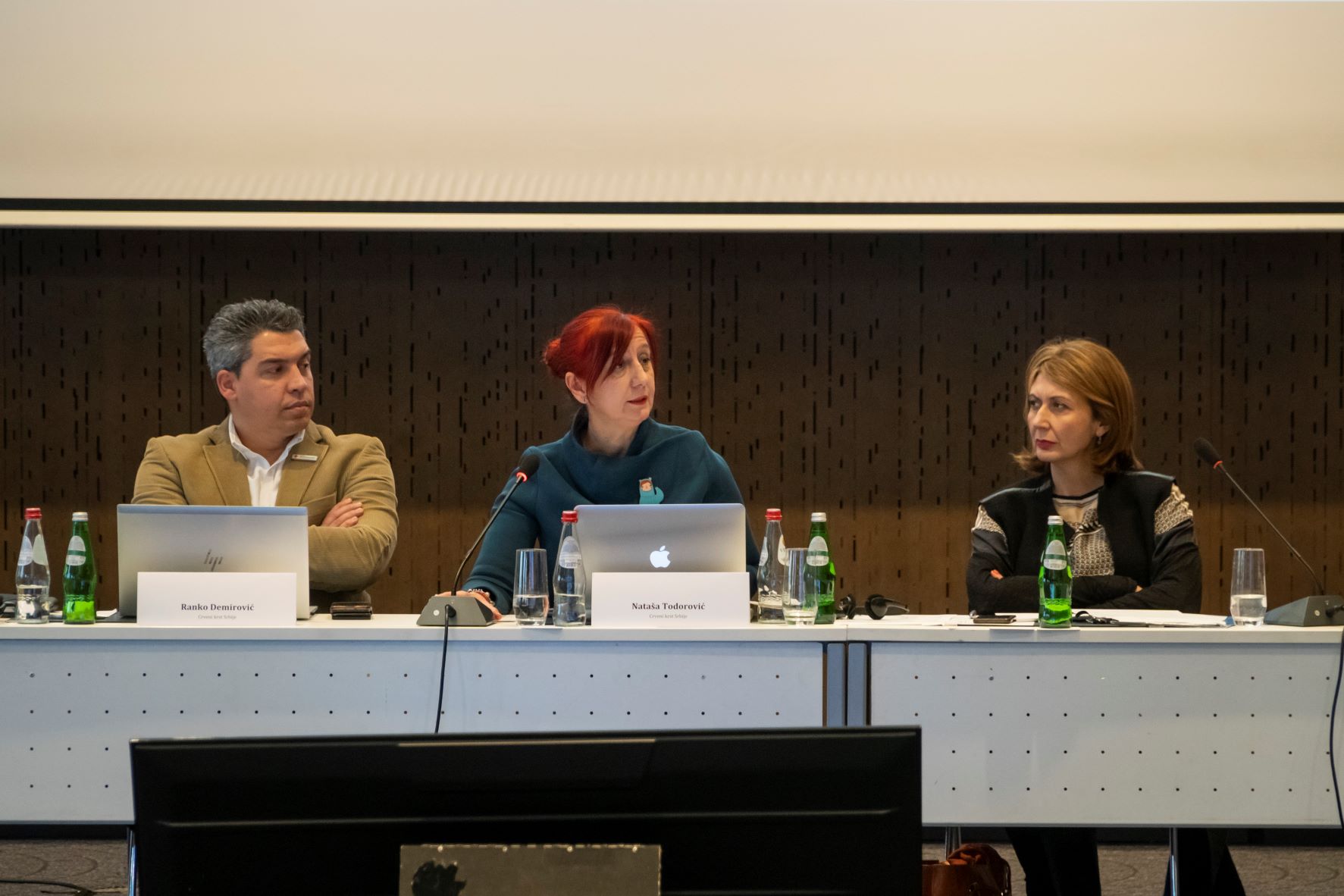
On December 12, 2022, the Radisson Blue Hotel in Belgrade hosted the workshop “Extending Social Protection to families in Serbia with enhanced shock-responsiveness” with the participation of decision makers and practitioners from key government ministries and agencies from the central and local levels as well as representatives of civil society, the academic community, the UN team in Serbia and the donor community. The workshop aimed to facilitate exchange of knowledge and strategic implications in the fight against poverty in Serbia and was organized within the joint UN program in Serbia implemented by UNICEF and UNFPA, with the participation of UNHCR and in close partnership with the Prime Minister's Special Advisor for Agenda 2030, the Ministry of labour, employment, veterans and social affairs, other relevant ministries, local self-governments, the Republic Institute for Statistics, the Red Cross of Serbia and the World Bank.
Representatives of the Red Cross of Serbia, Nataša Todorović and Ranko Demirović participated in this workshop through presenting examples of good practice from the Red Cross work. Ranko Demirović presented good practices in the field of providing assistance to families with children, in a project supported by UNICEF, while Nataša Todorović presented the cash assistance program for socially vulnerable older persons supported by UNFPA. She also presented cash and voucher assistance activities for vulnerable older persons and persons with disabilities, implemented this year in the region as part of the project “Strengthening resilience of older persons and persons with disabilities during COVID-19 and future crises” coordinated by the Red Cross of Serbia and with the support of the European Union and the Austrian Development Agency.
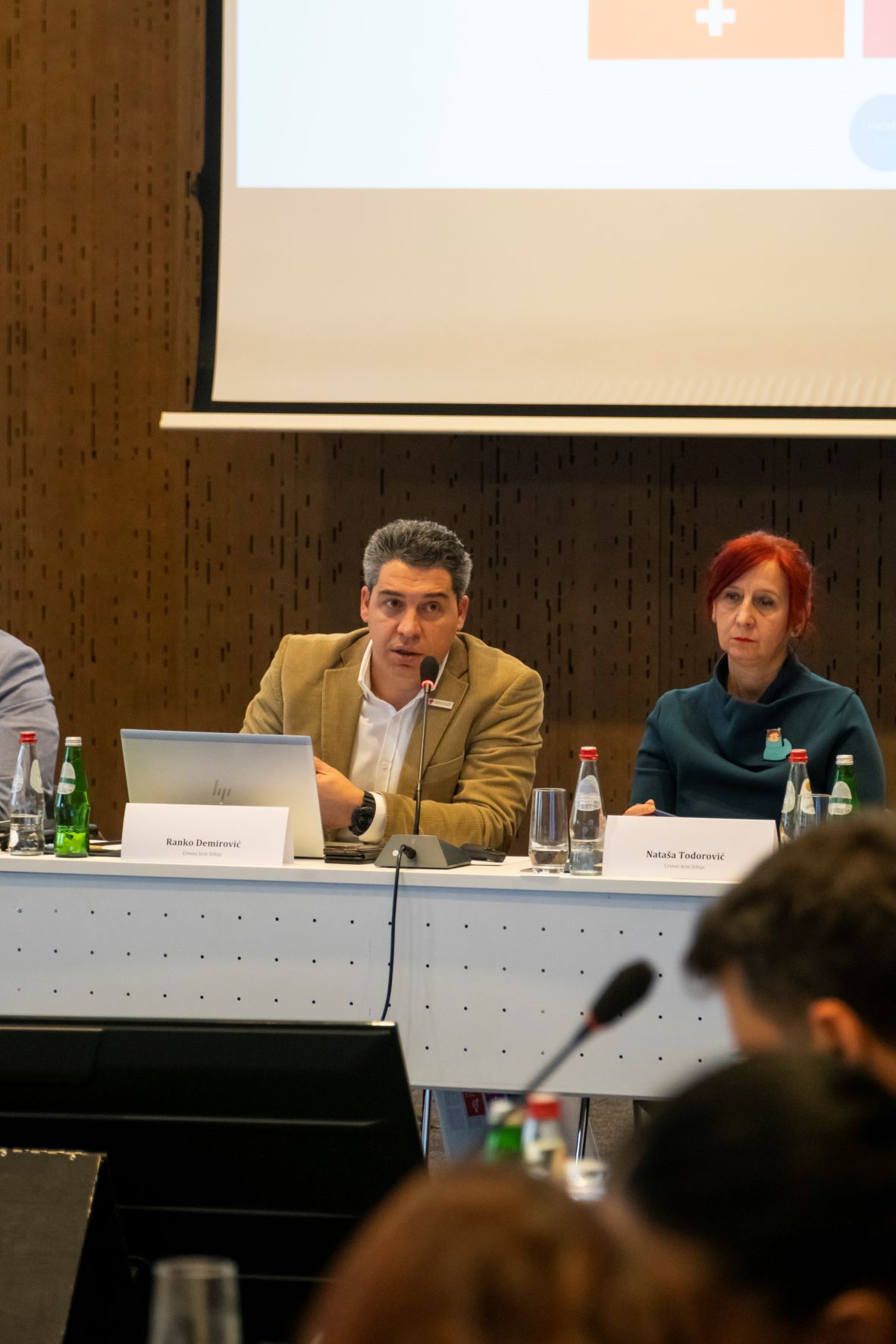
There are clear a advantages of distributing cash compared to the classic distribution of humanitarian aid packages, this is a more economical type of due to numerous savings and it allows the recipients, especially older persons with their very different needs, to adapt the aid themselves and satisfy a specific need in a specific crisis situation. Although the distribution of cash cannot be the only and universal response to humanitarian crises, this is a type of aid that is cheap and relevant in a large number of scenarios, and since it is adapted to the individual needs of individuals, it is also adequate.
